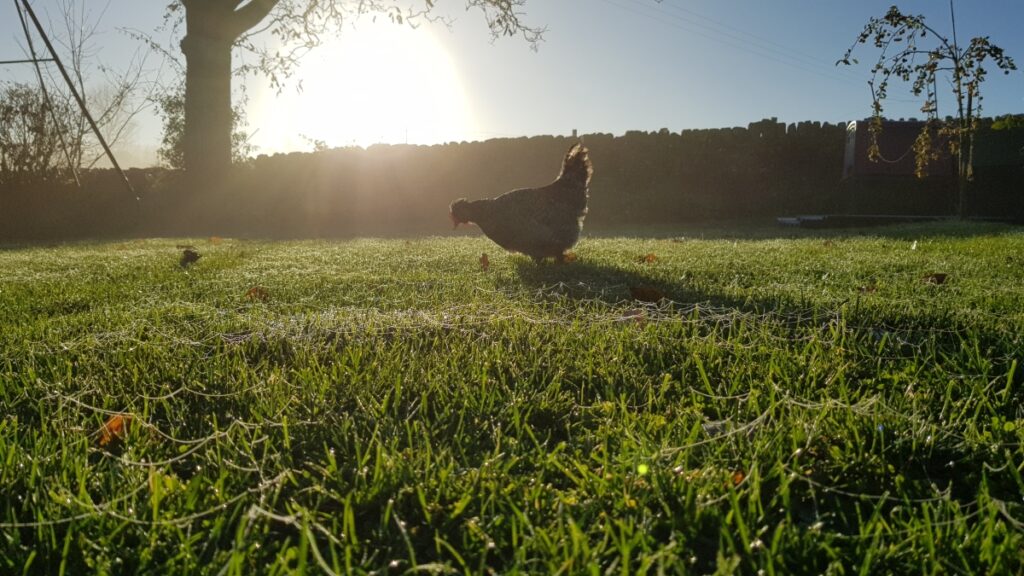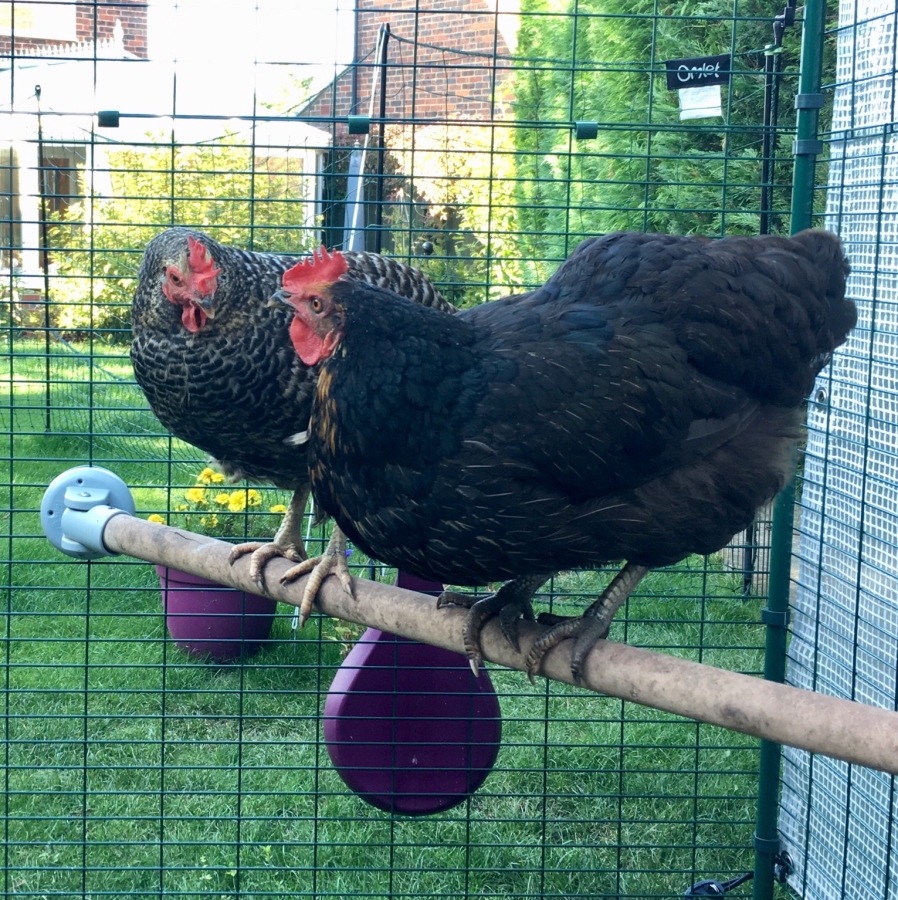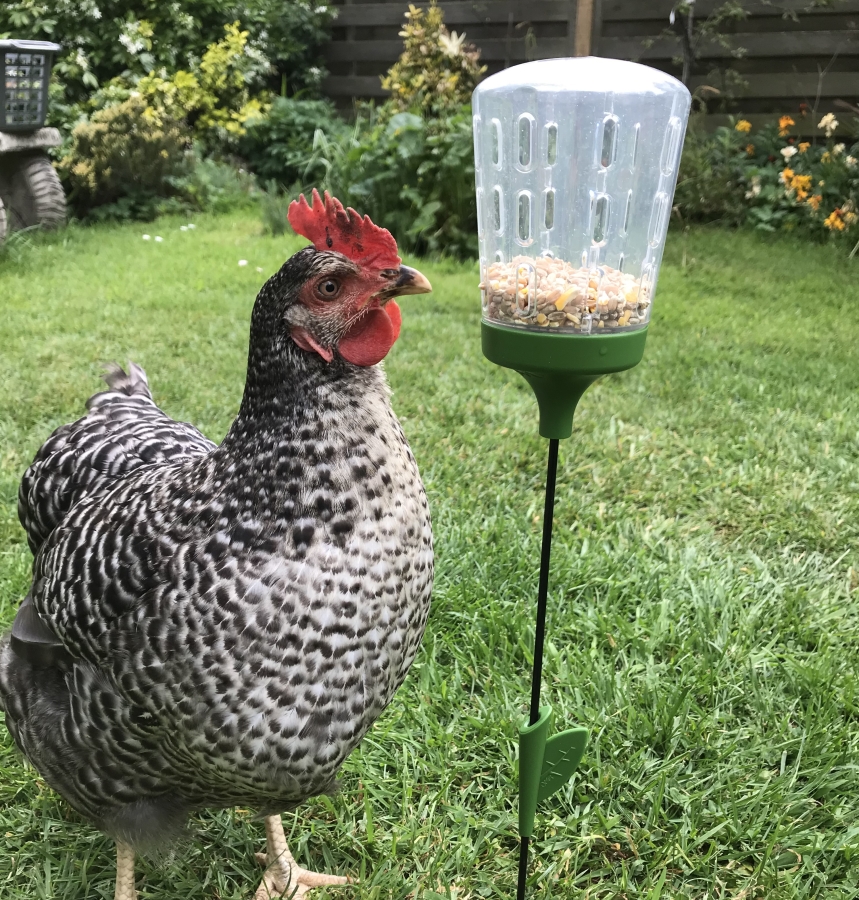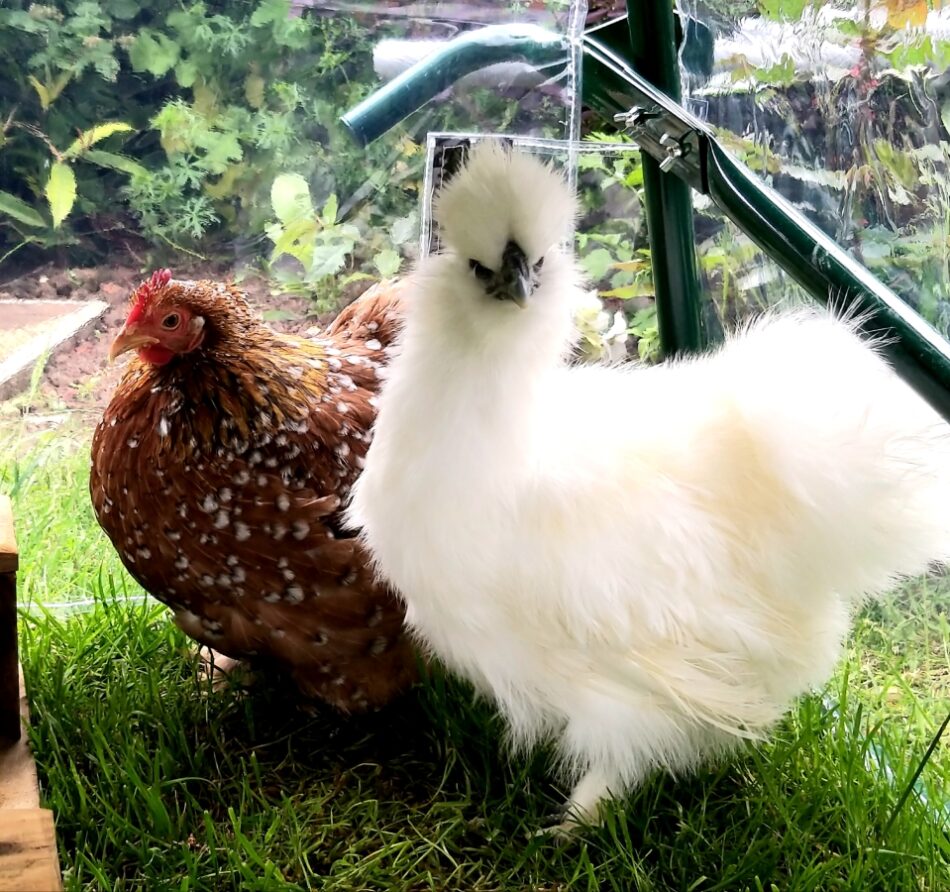What Should I Consider When Keeping Chickens?
Note: from 14/12/2020 all chickens in the UK should be kept indoors to prevent the spread of avian flu. For more information, please see these articles: https://blog.omlet.co.uk/2020/11/26/
https://blog.omlet.co.uk/2021/01/27/
 Having some feathered friends in your garden who regularly lay eggs for your enjoyment – that sounds good, doesn’t it? But there are a few things to consider before raising and keeping chickens in your backyard. Whether your garden is suitable for chicken keeping or the actual costs which are involved… In this respect, we’re going to be egg-ucating you today about some advice and guidance!
Having some feathered friends in your garden who regularly lay eggs for your enjoyment – that sounds good, doesn’t it? But there are a few things to consider before raising and keeping chickens in your backyard. Whether your garden is suitable for chicken keeping or the actual costs which are involved… In this respect, we’re going to be egg-ucating you today about some advice and guidance!
What does it cost to keep chickens?
The regular running costs include feed, bedding, sand, lime, water and electricity. Depending on the breed and age of your chick and the type and quality of the feed, you should expect about £12 for five chickens/month. If your chickens also find a lot of feed in the run, you can keep the costs quite low, while high-quality organic feed costs significantly more. You can also budget stuff such as cabbage, cauliflower leaves or spinach to supplement their pellets, as hens do need a bit of greenery in their daily diet. Bedding cost approximately £15.
 In addition, there are costs for the vet, which can hardly be calculated. The vaccination costs are still quite manageable, the vaccine itself is a maximum of £15. Depending on what you want to vaccinate your chickens against and whether you also deworm regularly, the costs naturally increase. With other health supplements we can calculate £60/year.
In addition, there are costs for the vet, which can hardly be calculated. The vaccination costs are still quite manageable, the vaccine itself is a maximum of £15. Depending on what you want to vaccinate your chickens against and whether you also deworm regularly, the costs naturally increase. With other health supplements we can calculate £60/year.
To answer simply, the maximum cost to raise chickens in your backyard will be £50/month, for a flock of 5 hens. Basically it can be said, chicks are cheaper than other pets like dogs or cats and we even receive some delicious eggs from them.
Please be aware that all prices listed here are very general estimates and can vary greatly from state to state and between cities and towns.
Besides these running costs you should definitely purchase a convenient and practical chicken coop to keep your pullets safe. You can buy a pre-made coop or you can build your own.
to keep your pullets safe. You can buy a pre-made coop or you can build your own.
Something that definitely needs to be on the list is a food and water dispenser, a perch and at best some peck toys and a treat holder for the cleanest and healthiest way to feed treats to your flock.
And don’t forget the costs of chickens themselves. These costs depend on the breed and their age. A good starter flock usually consists of 4 to 5 birds aged 16 to 24 weeks. If you’re up for a special breed or pedigree chickens, the prices might be more expensive. The chicken costs may vary between £3 and £12 per chick.
Please visit our guide ‘How Much Do Chickens Cost?’ for specific information:
https://www.omlet.co.uk/guide/chickens/should_i_keep_chickens/how_much_do_chickens_cost/ The Omlet Peck Toy
What is the workload and do I have enough time to keep chickens?
The daily workload depends on the size and age of your flock, and how well you pre-planned. It’s a matter of course that newly hatched or baby chicks might need much more of your time than adults. For finding out which chicken age is more suitable for you, please refer to our previous blog: ‘Chicken keeping for beginners: adult chickens or baby chicks?’ (insert the link).
Generally you can say, the more chickens you have, the more work there is to do – but also the more eggs that will make you and your family happy each morning! However, keeping chickens in a small flock with around 6 animals is much easier than keeping a dog. You will need to feed your flock and change their water daily, and give them all a quick daily health check. Moreover, you should let your chickens out of their coop at least once a day, either on a free-range basis or in an enclosure, which will ensure to keep them safe from predators.
Another important factor you should keep in mind is your working hours. If your work starts in the early morning or in the late evening, it’s difficult to manage letting your chickens out of the coop and back inside again. However, this doesn’t necessarily imply that you are not able to keep chickens at all. For this, it’s a good alternative to purchase an Automatic Chicken Coop Door, which can completely open and close automatically, even when you’re not there!.
With an effort of approximately 10-15 minutes workload per day, you will be able to take the essential actions to keep happy and healthy chickens (plus any extra play and cuddle time you choose!).
Is my environment suitable for keeping chickens?
 In order to keep healthy and happy chickens it is necessary to have a safe outdoor area with plenty of space, where they can exercise, enjoy the sunshine and fresh air. Your chicks should be able to express normal behaviours, such as scratching, foraging and dust bathing.
In order to keep healthy and happy chickens it is necessary to have a safe outdoor area with plenty of space, where they can exercise, enjoy the sunshine and fresh air. Your chicks should be able to express normal behaviours, such as scratching, foraging and dust bathing.
The selection of the chicken breed as well as how many chickens you want to keep are the key indicators for the necessary space requirement. You should definitely give your chickens plenty of green space to enjoy their freedom. However, it is important to have a coop and an outdoor enclosure to keep your chickens safe from predators when you’re not around.
Who takes care of my flock if I’m away?
Whether you’re planning a short time away from your flock or a longer trip – with appropriate planning there are ways to manage it, so you can leave your chickens without a guilty conscience.
The most convenient and easy way would be to ask a friend, family member or your neighbour to have an eye on your flock while you’re away. If you’re unlucky and can’t find someone around you, don’t worry. Ever heard of a chicken sitter? Yes, they do exist. Investigate in your local area whether a chicken sitting or boarding service is available. As for dogs or cats the same goes with chickens: the ideal chicken sitter is one who knows poultry well.
An alternative is to invest in an automatic feeder. It allows your flock to get access to food all day at will and keeps rats or other unwelcome guests away. Another great item would be an Automatic Chicken Coop Door, where you can set the time via the control panel, when the door will open and close the coop at a certain time or based on the rising and setting sun, so they can still enjoy their freedom when you’re not home.
Can I mix different breeds of chicken?
Yes, in most cases you can mix breeds of hens, while it is better to let roosters be on their own.

If it comes to age, older chickens can sometimes bully chicks simply because of a
pecking order issue. Suddenly, there are new chickens in the coop, and the older chickens want to establish themselves at the top of that pecking order but this is a natural conscious behaviour and has nothing to do with the breed itself.
Real problems may occur by “mixing” breeds when you have e.g. five chickens that are very similar looking (like Rhode Island Reds and New Hampshire Reds) but only one chicken with a very different look. Chickens who look entirely different from the rest of their flock can get picked on.
Some crested chicken breeds e.g. the Polish do not see very well, because their crest feathers are in the way, which can be a disadvantage and might lead to getting pecked.
The most important thing to remember when integrating new birds into an existing flock is to isolate or quarantine all new birds for at least 30 days. This gives you time to observe all new birds for symptoms of disease and/or signs of external parasites and to treat them if necessary. Then once the 30 day isolation period is completed, introduce new chickens or chicks to the flock and always monitor the interactions between old and new chooks up close and personal until you’re sure that all is well. When they feel comfortable and get along, a simple daily check-up will do fine. For acquaintance, allow your chickens to free range and mingle together. More information regarding introducing new chicks to your flock you can find here: https://blog.omlet.co.uk/2020/04/26/how-to-introduce-new-chickens-to-your-flock/
Always remember, your feathered friends are living animals and you’re making a commitment to care for them properly. Make sure you have sufficient time and space for them to live happily and healthily.
If you keep your chickens in the above stated conditions, they will be grateful and thank you with some snuggles and delicious eggs. The better the pre-planning, the more relaxed you will be and the more satisfied your chickens will be.
No comments yet - Leave a comment
This entry was posted in Chickens on March 12th, 2021 by juliakretzner